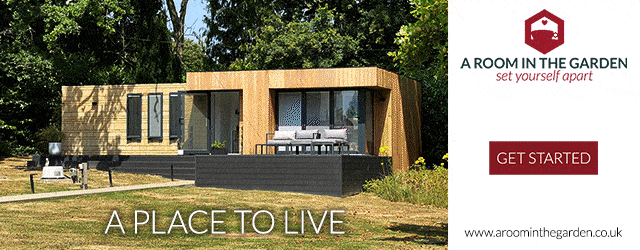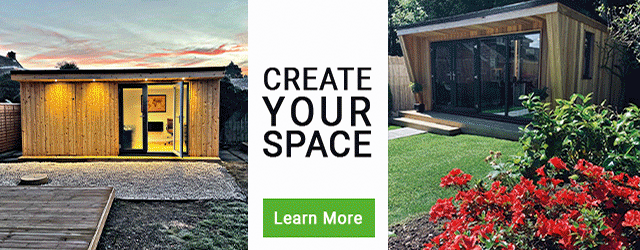Talk to your neighbours when building a garden room
Our many years in the garden room industry tell us that it is wise to talk to your neighbours when building a garden room. They tend to get twitched, and a conversation early on can save you problems further down the line.
If your circumstances require you to apply for planning permission to build a garden room, The process will involve contacting your neighbours for their opinion. It would be wise to share details of what your garden room will look like and how you plan to use it with your neighbours before the planning office contacts them.
Even if you are building your garden room under the Permitted Development rules and therefore not applying for planning permission, it is still a sensible conversation to have with your neighbours.
Tell your neighbours what you will use the room for
These days, garden rooms are used for so many different activities. Some people use them as a home office, others for entertaining friends, and there is all manner of other uses in between.
In our experience, it is helpful if you give your neighbours an indication of how you plan to use your new space.
Over the years, we have spoken with neighbours who are concerned about a garden music room being built next door. They are worried how they will use their own garden when there is constant noise coming over the fence. If the music studio owner had explained that their studio has additional acoustic elements in the build-up to reduce the noise emitted, the neighbour needn't have worried.
Typically, a neighbour will not get too twitchy if you are building a garden office and working at your computer during work hours. If, however, you were building a hair salon in your garden, a neighbour might be concerned about noise and where people are going to park.
Explain that your garden room complies with the Permitted Development rules
If you are building your garden room under the Permitted Development rules, explain to your neighbours that your building follows the rules on height and positioning in relation to the boundaries of your garden.
Over the years, we have known neighbours to worry about a garden room being built without planning approval. Often, they don't realise that these buildings can be installed under the Permitted Development rules.
You could avoid your neighbours worrying by popping around with the plans for your building and confirming how the height and positioning comply with Permitted Development.
A Lawful Development Certificate may reassure your neighbours
We have written about how obtaining a Lawful Development Certificate for your garden room from your Local Authority can be reassuring that the work you are undertaking is legal. It can also be a useful document when you come to sell your house, as your buyer's solicitors may ask for it.
As we mentioned above, neighbours can get twitched by a garden room not having planning approval. Obtaining a Lawful Development Certificate would assure your neighbours that you are complying with the relevant rules.
Explain how long the installation phase will last
Another aspect we know can frustrate neighbours is how long construction work will be going on. We can sympathise with this, as our own neighbours have been noisily constructing an extension for the past three years. Even they have lost track of when it might be finished!
Luckily, garden room designers are much better at estimating on-site build times. Because in garden room design, a lot of the construction work is undertaken off-site, the on-site phase can be much quicker than other types of home improvement.
There are ranges of small garden rooms that can be fully installed in just a day on-site. Larger, more complex designs can take two to three weeks to complete. In most cases, the installation teams are on-site Monday to Friday within normal business hours.
Garden room companies are experienced at project managing their builds. They will be able to estimate when the material deliveries will be. They will also be able to tell you how many vehicles they will bring so that you can organise parking.
Sharing information about deliveries and parking with neighbours and indicating the hours the installation team work, should allay their fears.








